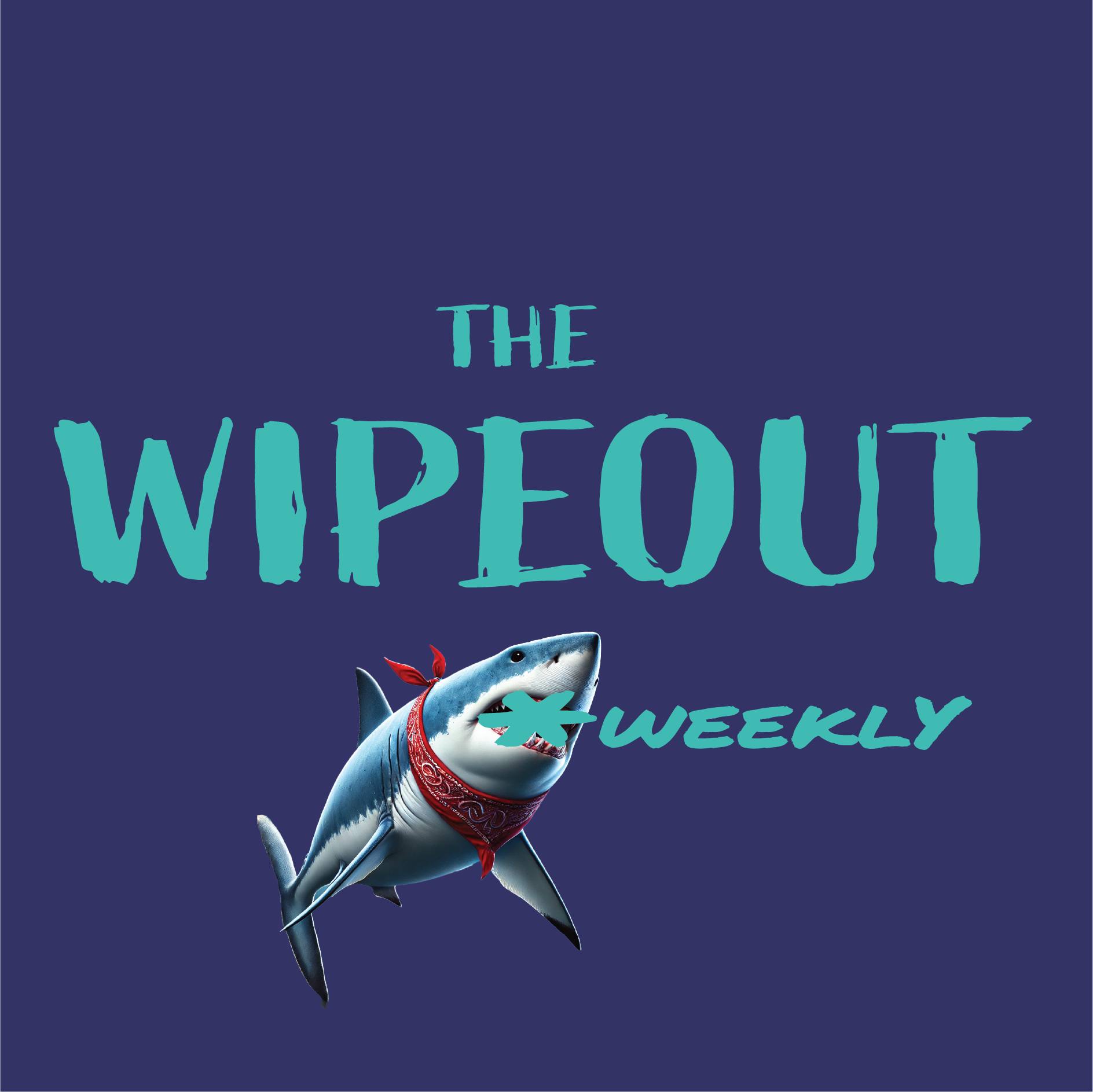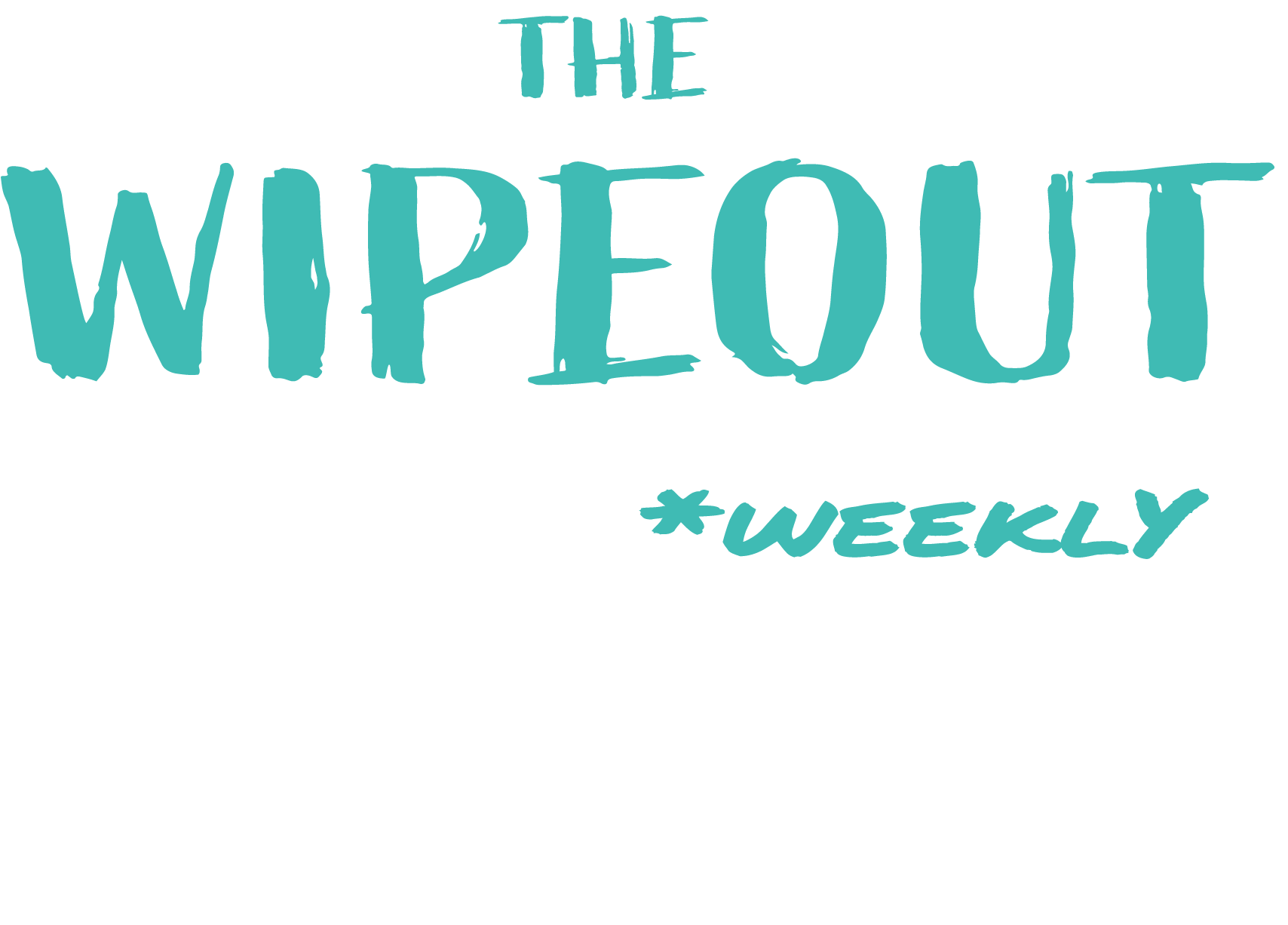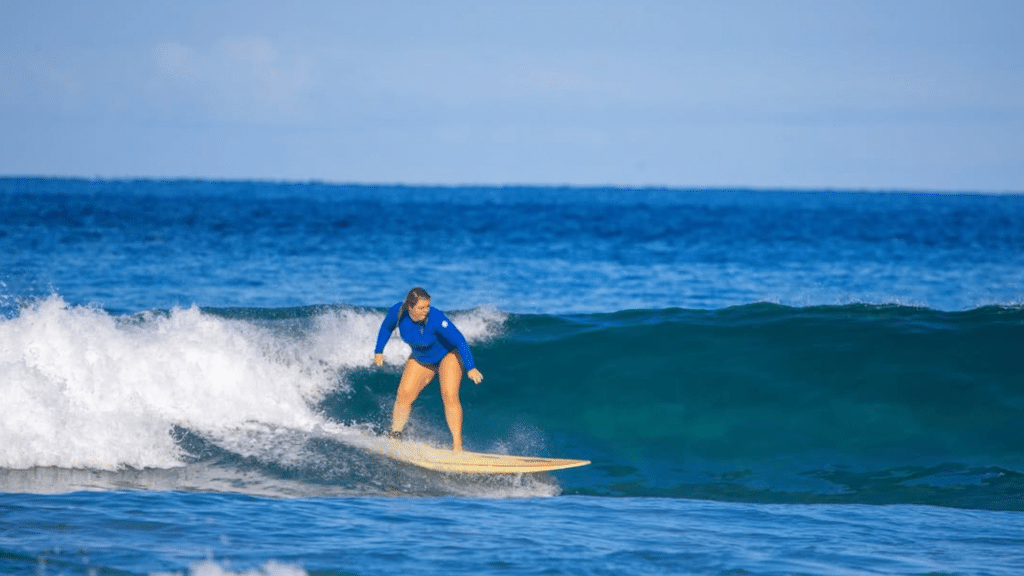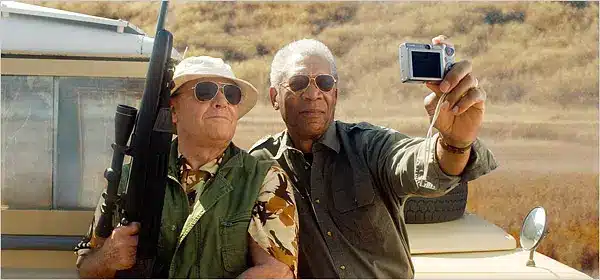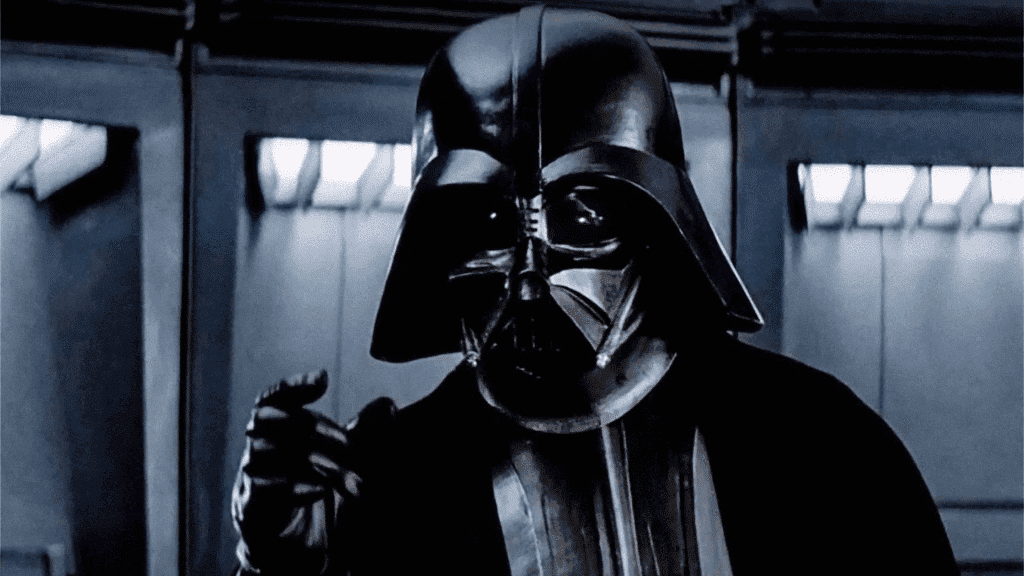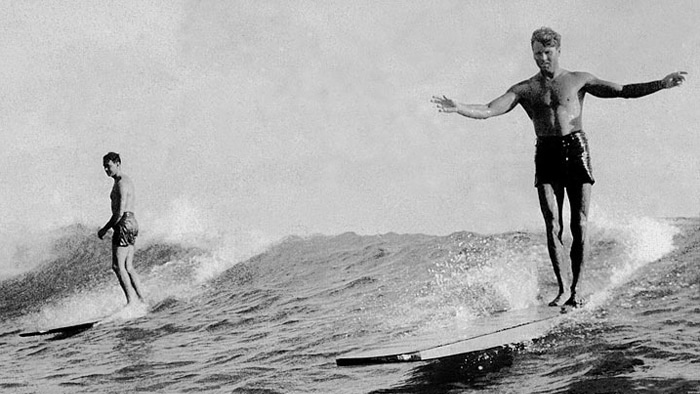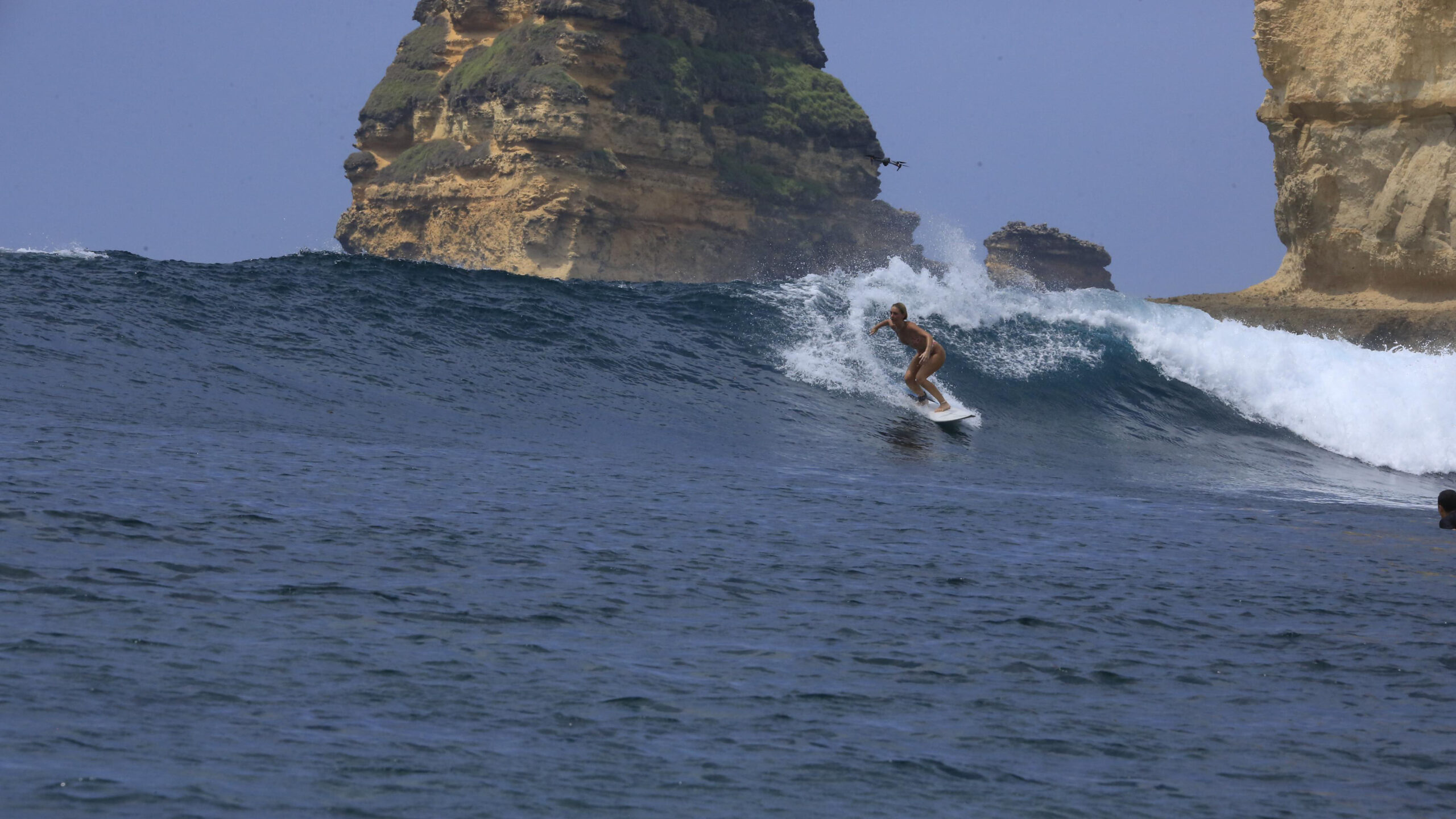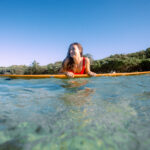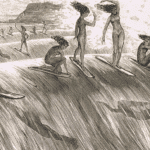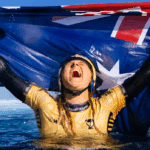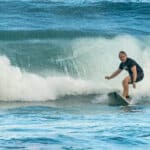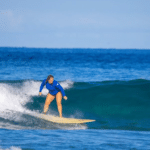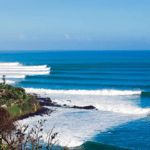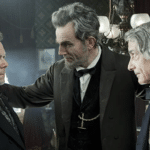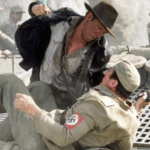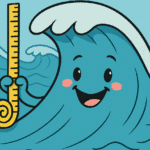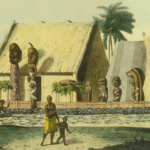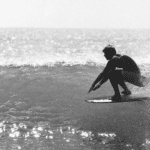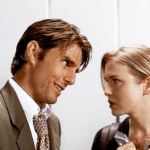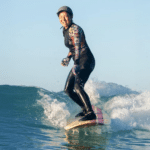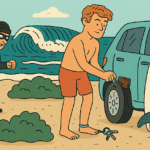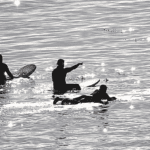Now Reading: Surfing with Oprah—and why you shouldn’t go on a surf retreat if you’re already happy
-
01
Surfing with Oprah—and why you shouldn’t go on a surf retreat if you’re already happy
Surfing with Oprah—and why you shouldn’t go on a surf retreat if you’re already happy
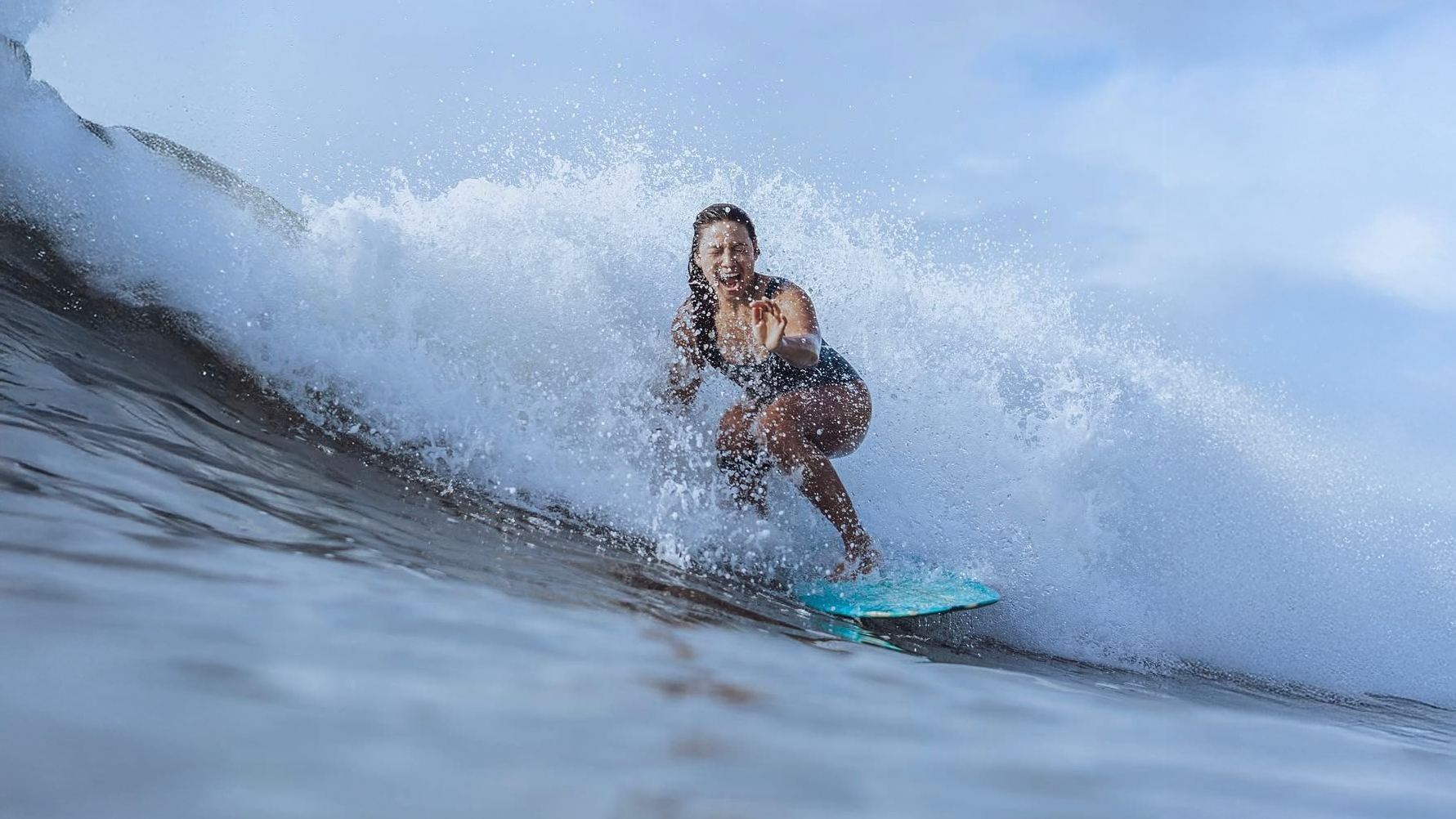
This Wipeout Weekly podcast episode transcript was abbreviated to a blog post format by my good friend Chad (ChatGPT). You will find the full transcript below it. Host: Zuz Wilson | Guest: Nikki Nie
Nikki: It just changes the way that you come back home in your life. And sometimes it shakes you up so much that nothing feels right when you go back home. You’re like, “Gosh, the people I’m hanging out with aren’t really cheering me on… and the job I have is just sucking the soul out of me and not giving me an actual life of living.”
Zuz: Welcome to The Wipeout Weekly, the daily podcast for beginners, wannabe surfers, and seasoned wipeout enthusiasts. No hype, no filler—just the highs, lows, and honest truths about learning to surf and finding your place in surf culture.
I’m your host, Zuz Wilson. Let’s go out.
I actually wanted to call this episode Surfing with Oprah, but… how did this even come about? How did you end up working with Oprah?
Nikki: That was through Kinergy, a dance fitness company I worked for, created by Julianne Hough. Right before the pandemic, we got invited to go on her wellness tour. We opened the second act with a 10-minute version of our workout. We got to do a mini tour of the country—right before everything shut down.
Zuz: That’s incredible. And you’re a trained dancer, right? That was your path before surfing and retreats?
Nikki: Yeah! I’ve been a professional dancer since I was 18—so over 20 years now. I think what really appealed to me was the ability to travel and live a spontaneous lifestyle. Looking back, it wasn’t what I was meant to do, but it was the stepping stone to what I do now.
Zuz: So what came first: surfing or dancing?
Nikki: They kind of came into my life around the same time. I started dancing and doing gymnastics when I was maybe seven. It was just a hobby—I wasn’t in a studio or anything. But then my mom’s side of the family is from Hawaii, and during a family vacation to Oahu, my grandpa found a beach boy friend and booked me a lesson. I was 12. I stood up on a big ol’ 10-foot board and loved it. But the surf bug didn’t bite me then.
Zuz: So when did it really start for you?
Nikki: I didn’t start surfing consistently until I was about 30. At the time I was living in LA, and me and my best friend decided we were going to become surfers. We knew nothing. We lived in Studio City but had a friend in Huntington Beach, so we’d leave at 4:30 a.m. Tuesdays and Thursdays, drive an hour and a half, paddle out at 6 a.m., and surf no matter the conditions. We didn’t even know how to read a surf report!
Zuz: What was the lineup like back then?
Nikki: Pretty mellow. We surfed some not-so-great spots with just a few friends. But when we started surfing Malibu First Point? That was intimidating. I’d sit in the lineup and not catch a single wave some days.
Zuz: Oof. And where do you usually surf now?
Nikki: I live in North County San Diego—Encinitas. I surf anywhere from Beacons to Cardiff. There are tons of breaks in between. Me and my surf buddy usually do a little morning surf check and pick the best spot.
Zuz: So what level are you now? Do you consider yourself advanced?
Nikki: Perpetual intermediate! I feel solid in different conditions, I know my limits, but there’s so much to learn. Nose riding, cutbacks, duck diving efficiently—especially on a shortboard. Bigger waves I don’t mind, but reefy low tide stuff still scares me. Hollow waves? Nah.
Zuz: What’s the biggest wave you’ve surfed?
Nikki: Solid 8-footer maybe. I’m 5’1”, so it looks twice my size. But I like a good 3–4 foot wave. I don’t need the fear of death, I just want to play in the water.
Zuz: You’ve surfed all over the world. What’s your favorite spot?
Nikki: Honestly? San Diego still holds it down. But I’ve had amazing waves in Indonesia—I used to live in Bali. Also Mexico and Central America. Warm water, no wetsuit? Game-changer.
Zuz: Worst surf injury?
Nikki: Oh man. I used to have this bad habit of bailing forward off my board. One day at Little Dume, I did it leashless, and the fin hit me in the back of the head. Needed stitches. It was the bougiest injury—got patched up in Beverly Hills. But I went right back in the water. Lesson learned: never jump forward!
Zuz: Okay, let’s talk retreats. What is a surf retreat?
Nikki: So many types out there. But what I offer is a mix of surfing, self-growth, community, and spirituality. It’s not just surf-eat-sleep-repeat. We do yoga, sound baths, meditation, sacred circles. We eat beautiful food. We hold space for one another. And the people who show up? They’re always on the same wavelength.
Zuz: So… yogini is the right word?
Nikki: Yup, that’s a word! For me, dance was physical. But I was neglecting my mental and emotional well-being. I was seeking validation—from casting directors, from men, from jobs. That led me to meditation, energy work, yoga. That inner work took me to Bali. That’s where the shift really deepened.
Zuz: And what’s the difference between a surf camp and a retreat?
Nikki: Camps are year-round, more focused on getting people standing up on boards, fast. Less intention. Retreats are more seasonal, curated. My retreats are intimate and holistic. Surfing, yes—but also connection, growth, wellness practices, maybe a cold plunge or volunteer work. It’s about more than just waves.
Zuz: Are surf retreats beginner-friendly?
Nikki: Totally depends. Some require you to paddle into your own waves. But in mine, beginners are welcome—we have surf coaches. What matters more is that you’re coming not just to surf, but to unplug, reset, and grow.
Zuz: How does it all work logistically?
Nikki: We lay everything out. You book your flight—we tell you where to land, what time to arrive. We pick you up. Your room, your meals, your surf lessons, yoga, video analysis—all taken care of. We even throw in activities like horseback riding and waterfall hikes.
Zuz: Do you need to bring your own board?
Nikki: Beginners, no. We provide boards, leashes, wax, everything. But if you’re more experienced and have a board you love, bring it. It makes a difference.
Zuz: What’s a typical retreat day like?
Nikki: Early wake-up. Light stretch or ocean ritual. Surf. Then big healthy breakfast. Chill time. Maybe a nap in a hammock. Then video analysis, maybe another surf or workshop. Could be sound healing, a group circle, or just watching the sunset with a smoothie. Then dinner, and early to bed.
Zuz: What do people not realize about retreats?
Nikki: That they can actually change your life. It’s not just about catching waves—it’s about reconnecting with yourself. A week away might make you come home and realize your job isn’t it. Your relationships aren’t nourishing you. Retreats show you what’s possible when you slow down and feel supported.
Zuz: So basically, if you’re happy with your life—don’t go?
Nikki: Pretty much. Because you might just leave wanting a new one. And that’s the gift and the risk.
Zuz: I love that.
Nikki: That’s why the people you meet at retreats become like family. They see you as you are now—not who you used to be. Some of my closest friendships started that way.
Zuz: So if someone wants to join your next one?
Nikki: I’ve got an intimate coed retreat—just eight people—happening June 8–14, 2025 in the Osa Peninsula, Costa Rica. It’s called Sacred Soul Surf Retreat.
Zuz: And best way to connect?
Nikki: Head to nikkinie.com or follow me on Instagram @nikkinie_nie_.
Zuz: That’s it for today. And our very first weekly guest episode! Thanks for paddling out with us.
Catch you tomorrow, wave chasers.
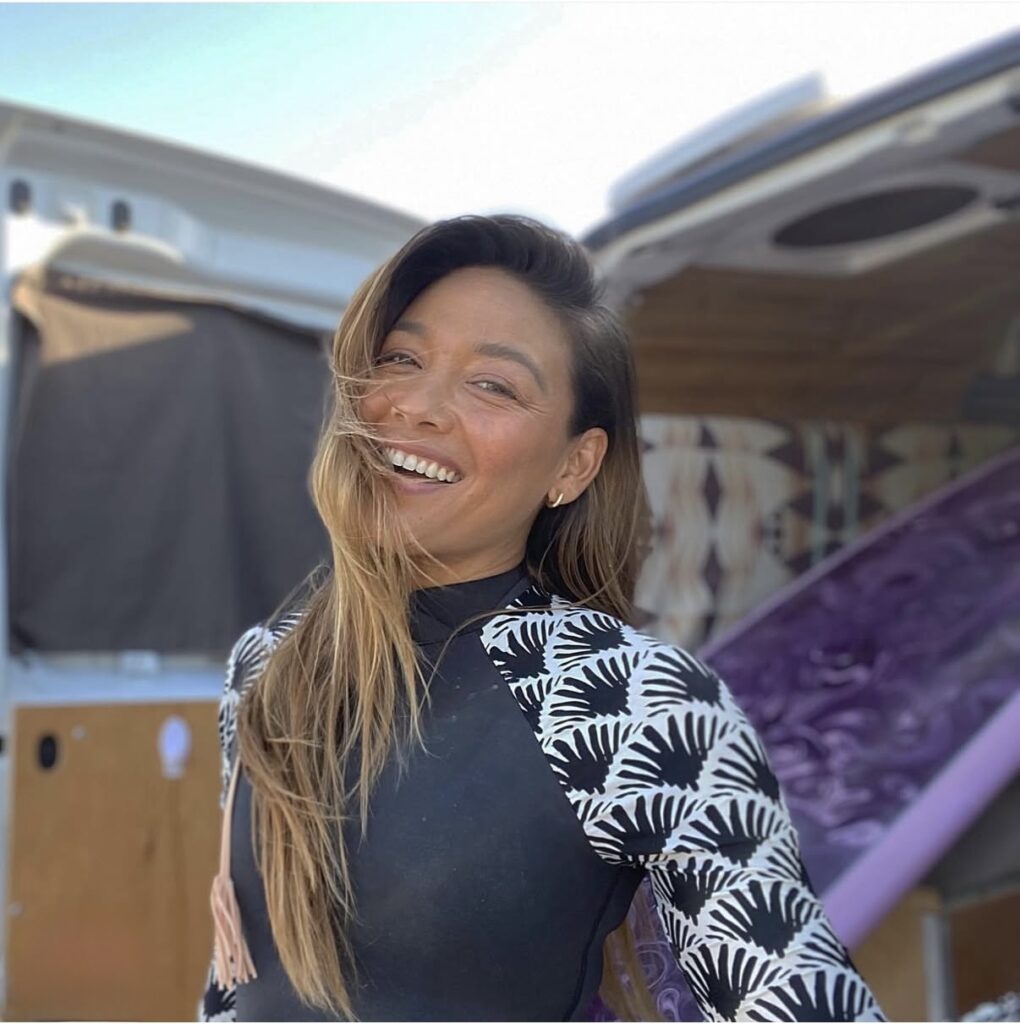
Full transcript
The Wipeout Weekly – Surfing With Oprah (feat. Nikki Nie)
Transcript
(0:00)
It just changes the way that you come back home in your life. And sometimes it shakes you up so much that nothing feels right when you go back home. You’re like, “Gosh, the people I’m hanging out with aren’t really cheering me on, and the job that I have is just sucking the soul out of me and not giving me this actual life of living.”
(0:21)
Welcome to The Wipeout Weekly, the daily podcast for beginners, wannabe surfers, and seasoned wipeout enthusiasts.
(0:28)
No hype, no filler—just the highs, lows, and honest truth about learning to surf and finding your place in surf culture.
(0:35)
I’m your host, Zuz Wilson. Let’s go out.
(0:43)
I actually wanted to call this episode Surfing with Oprah, but—how did this even come about? How did you end up working with Oprah?
(0:50)
That was through Kinergy, which is a dance fitness company I worked for, created by Julianne Hough.
(1:00)
And right before the pandemic, we got invited to go on her wellness tour. We opened the second act with a 10-minute version of our workout, and yeah, we got to do a mini tour of the country right before everything shut down.
(1:23)
Wow, that’s incredible. And you’re a trained dancer, right? Because that’s what you did for four years before you became a surfer and started running all the surf retreats?
(1:35)
Yeah, I’ve been a professional dancer since I was 18—so, gosh, over 20 years now. I think that connection to my body and performing was really meaningful. Looking back, what really appealed to me about being a professional dancer was the ability to travel and live a spontaneous lifestyle. Every day was different. But it wasn’t necessarily what I was meant to be doing. It was the stepping stone that led me to what I’m doing now.
(2:18)
So what came first—surfing or dancing?
(2:24)
They were introduced to me around the same time. I started dancing and doing gymnastics when I was about seven. But it was just a hobby—I wasn’t in a studio or doing it competitively. My mom’s side is from Hawaii, so we were on a family vacation to Oahu, where my grandparents were born and raised. My grandpa found an old beach boy friend who had a surf school, and I got my first lesson when I was 12 years old. I rode a big 10-foot board, got up on waves, and loved it. But I didn’t get the surfing bug then. That didn’t bite me until I was about 30 and started surfing consistently.
(3:10)
What did you surf when you started doing it consistently?
(3:15)
At the time, I was living in LA. My best friend and I just decided one day that we were going to become surfers. We didn’t know anything. We lived closest to Venice—we were in Studio City, in the Valley—but we had a friend in Huntington Beach, which is where I kind of grew up. So we would drive at 4:30 AM—an hour and a half to the beach—every Tuesday and Thursday. We didn’t know how to read a surf report; we just went. We’d show up at the beach at 6 AM, surf for an hour or two no matter what, and then head home by 10 AM to start our day.
(4:03)
What did the lineup feel like then? Friendly? Competitive?
(4:09)
We’d surf not-very-good spots, usually with just a handful of friends—me and four or five dudes. It wasn’t crowded. I didn’t experience the intensity of a real lineup until we started surfing Malibu’s First Point. That was a whole different ballgame.
(4:38)
How did that feel?
(4:38)
Really intimidating. Sometimes I’d just sit out in the lineup the whole time, not get any waves, and paddle in sad—until I built up some confidence. You’d wait for someone to fall off a wave, then sneak in. Eventually, you’d get one wave, then two… and some days, full sessions with all the waves you wanted. You’d learn the crowd—who to avoid, who would let you party wave.
(5:18)
Where do you usually surf now?
(5:25)
I live in North County, San Diego—Encinitas. I typically surf anywhere from Beacons Beach to Cardiff Reef. There are so many breaks between those two, so me and my buddy just check the surf in the morning and pick the least crowded, best option.
(5:50)
How would you rate your experience level now?
(5:57)
I feel like I’m a perpetual intermediate surfer. I don’t think I’ll ever be advanced—that mindset of always wanting to get better is just part of me. I feel proficient in a lot of conditions, and I know my limits. But there’s still so much to learn.
(6:18)
Like what?
(6:24)
I still want to get better at nose riding, smooth cutbacks—technique stuff. I mostly longboard, but when I’m on a shortboard, duck diving wears me out. I’d love more paddle strength and to feel more confident in heavier waves. Hollow waves scare me, especially on low tide reefs. I’ve only been in one barrel—and didn’t make it out. Not my jam.
(7:04)
What’s the biggest wave you’ve ever surfed?
(7:08)
I’ve got pictures of me on waves twice my size—but I’m only 5’1″, so it’s all relative! Probably a solid 8-foot wave. That’s about my current limit.
(7:35)
That’s wild. I’m like half a foot and that’s my limit.
(7:42)
Yeah, I prefer 3–4 feet. I’m not chasing that adrenaline and fear of death. I just want to play and connect with nature.
(8:02)
You’ve surfed all over—what are your favorite places?
(8:05)
I have, but funny enough, I love San Diego the most. Sometimes I travel across the world and think, “Dang, the waves were better at home today.” Indonesia’s always been great—I lived in Bali for a while, so I’ve had lots of fun waves there. I also love Mexico and Central America. Warm water is the best—no wetsuit required.
(8:40)
I know. Somebody said that it’s like a different sport—surfing in a bikini or spring suit vs. surfing in a wetsuit. And I totally get that.
(8:52)
Right? It’s a whole other game when you’re squeezing in and out of a wetsuit.
So—apart from not making it out of that barrel—what’s the worst thing that’s happened to you while surfing?
(9:12)
Yeah, there was a time—maybe five, six, or seven years ago—when I had this terrible habit. When a wave was about to close out, I’d jump off the board in front of it. Like, instead of kicking out or bailing behind, I’d press the eject button going forward. I don’t know what happened.
(9:48)
One time I was surfing Little Dume in LA. It was kind of shallow, the wave closed out, I was on my longboard, leashless. I did that weird forward jump, the wave picked up my board, and the fin hit me in the back of the head underwater. I heard a dunk—just sliced right into my head.
(10:15)
There were other people in the water, and it hurt, but I wasn’t in tons of pain. I didn’t get knocked out. I swam over to someone, and they were like, “Are you okay?” I said, “I don’t think so.” He moved my hair, saw the blood, and said, “Yeah, you should probably paddle in.”
(10:42)
My best friend saw me getting out. There were quite a few steps back up to the street. At the top of the beach, there was a medic who looked at it and said I needed stitches. It ended up being the bougiest surf injury ever—Little Dume is private, you need a key to that neighborhood. My buddy drove me to an urgent care, which turned out to be this private practice in Beverly Hills. They cleaned me up and stitched me up.
(11:35)
How long until you got back in the water?
(11:35)
Right away. I went back in pretty soon. I was surfing K-38 in Mexico and did the same dumb forward bail, but that time I covered my head. The fin hit my fingernail and messed up my nail—but at least no stitches! That was the last time I did that. Something finally clicked, and I learned to kick out or bail backward. Never jump forward—ever. That’s the danger zone.
(12:21)
Good. That’s going to be my lesson now: don’t do that.
(12:29)
Right? Don’t do it.
(12:38)
Okay, we’re here to talk surf retreats—because you’re a surf retreat expert. And I want to know: what is a surf retreat? I have no clue.
(12:44)
Yeah, there are lots of variations out there now. But speaking from my own experience as a retreat host, what I aim to create is a mix of surfing, spirituality, self-growth, and community. It’s not just “let’s become the best surfers possible in one week.” There’s more balance.
(13:23)
To me, the ocean is the most divine space. Surf retreats are about integrating wellness—yoga, meditation, sound baths, breathwork, sacred circles—into the surfing. It’s about tools and practices that help you feel more connected to nature, the ocean, and yourself. You’re eating clean, seasonal foods, and the people who show up are usually on the same wavelength. You often leave with deep friendships and long-term surf buddies.
(14:29)
That sounds amazing. And you mentioned the spirituality side—you essentially went from dancer to yogini, right? That’s the word?
(14:42)
Yep, that’s the word!
(14:54)
That transformation happened because I spent so much time taking care of my physical body as a dancer—but none taking care of my mental body. I wasn’t happy, even though I “should” have been. I was seeking validation from casting directors, men, jobs. That was the breadcrumb trail that led me to meditation, energy work, and a deeper spiritual connection.
(15:34)
The real work was in sitting still. In yoga, we call it tapas—self-discipline that purifies and transforms you. For me, it wasn’t movement—it was breathwork, stillness, and remembering who I really am. That journey led me to Bali, where I did my yoga trainings. It’s been a major part of my life ever since.
(16:15)
What’s the difference between a surf retreat and a surf camp?
(16:21)
Surf camps are often permanent, all-year-round operations. They’re usually very focused on just getting people to stand up on a board. Not much emphasis on holistic growth. Surf retreats, on the other hand, are more seasonal, and more intentional. They attract people who want to surf—but also connect more deeply, do yoga, meditate, eat mindfully, maybe volunteer. You’ll have a coach at both, but retreats bring in that community and self-development aspect.
(17:59)
Are surf retreats just for people with some experience? Or can beginners come?
(18:04)
It depends. Some retreats require you to paddle into your own waves. But the one I’m hosting includes surf coaching, so beginners are welcome. It’s really more about someone who wants to grow—not just in surfing, but in life. Someone who’s ready to unplug from the day-to-day and come back to themselves through surfing and all the other integrated practices.
(19:15)
So how does it work logistically? Say I sign up and meet the basic requirements, like being able to paddle out by myself—what happens next? Are flights included? What do I need to organize?
(19:26)
That’s one of the beautiful things about a surf retreat—there’s not much you have to plan. A lot of people avoid surfing new spots because it feels scary or overwhelming to plan it all. But when you join a retreat, it’s all laid out for you.
(19:49)
You’ll book your own flight, but we’ll tell you exactly where to fly into, what time to arrive, all of that. After that, everything’s handled: airport pickup, transportation, accommodations, meals, surf coaches, wellness sessions—it’s all there.
(20:22)
If you want to rent a scooter or do a hike or some extra adventures, that might be add-ons. For my retreat, for example, we include things like horseback riding, cold plunges, and a waterfall hike—plus daily surfing, yoga, video analysis, and all the wellness stuff.
(20:46)
Some retreats offer extras à la carte—like if you want to purchase your surf photos or videos afterward. You’ll typically want to bring your own rash guards, swimsuits, and maybe a wetsuit depending on the destination. If you have a board you love and feel comfortable traveling with it, I say bring it. But if not, don’t stress—boards, leashes, wax, and all that are usually provided.
(21:35)
As a beginner, don’t worry about gear. But once you know what you like, it really helps to have your own board. Otherwise, you could spend half the trip figuring out a rental board instead of enjoying the waves.
(22:06)
What does a typical day on retreat look like?
(22:06)
It usually starts bright and early. You get into a rhythm of going to bed early so you can rise for morning surf. Maybe we’ll do a little pre-surf ritual or stretch to honor the ocean. If the waves aren’t on yet, we might start with a yoga session instead.
(22:33)
Then we surf, come back for a big beautiful breakfast—local fruit, healthy, seasonal food. After that, there’s downtime. Maybe a hammock nap, or some beach or pool lounging. Then we’ll do video analysis together to look at our surf clips from the morning.
(22:59)
Depending on the day, there might be another surf session, somatic movement, horseback riding, a sound bath, or other experiences. Then dinner—usually something nourishing and communal—and after that, maybe a cold plunge or a short workshop.
(23:35)
Some nights we just crash early because, let’s be honest, two surf sessions, movement practices, and emotional growth work is a lot. It’s the best kind of tired.
(23:43)
Is there one thing—or maybe two—that people don’t realize about surf retreats?
(23:48)
People really underestimate the value of them. It’s easy to think, “I could just take the same trip with a friend for half the cost.” And sure, you could. But the truth is, retreats are different.
(24:27)
It’s not about frothing as hard as possible, getting sunburned, and flying home exhausted. Sometimes that’s what you want—but right now, in this world full of chaos, validation-seeking, hustle culture… we need more than that.
(24:58)
Surf camps can keep you in that go-go-go mentality. Retreats are different. They teach you to be unrushed, to slow down your learning, to have space. You connect with people who genuinely want you to thrive—and you want that for them, too. That’s a rare kind of support.
(25:22)
And it really can shake you up. You go home and start questioning everything: the job that drains you, the people who don’t lift you up. And you start to make different choices—ones that shape a life you actually want.
(26:10)
So basically, if someone doesn’t want their life totally shaken up, they should not go on a surf retreat?
(26:17)
Yeah, exactly. Forewarning: if you’re not fully content with your life, a surf retreat might just be the thing that pushes you to change it. You’ll confront emotions, unlock things you didn’t know needed unlocking. You’ll learn to hold space—for yourself, for others.
(27:01)
And that makes you a better partner, friend, coworker. When someone shows up as their true self and you just witness them without judgment? That’s a gift. You don’t need to solve anything for anyone. You just hold space, feel things, and move forward more deeply connected.
(27:46)
So maybe it’s not a warning—it’s a promise. That after a surf retreat, you’ll be a better surfer and a better human.
(27:52)
Exactly. That’s why you end up so close with the people you retreat with. They see the most real version of you—and you show up the way you want to be, without all the old stories or judgments from your regular life.
(28:41)
You end up with friends all over the world. I still travel with people I’ve met on retreats. We surf together, eat together, call each other when we’re in town. It’s a beautiful, ongoing connection.
(28:45)
That sounds absolutely wonderful. So—if someone wanted to go on your surf retreat, are there still spaces?
(28:53)
Yes! It’s a very small group—only 8 people, which is perfect for a surf retreat. It’s happening June 8–14, 2025, in the Osa Peninsula of Costa Rica. We’re not sharing the exact location publicly so we don’t blow it up—but you’ll get all the details once you sign up.
(29:26)
It’s coed, and it’s called the Sacred Soul Surf Retreat. It’s all about weaving the spiritual elements of surfing with the athletic and emotional growth, both in the water and out.
(29:40)
What’s the best way for someone to reach you if they’re interested?
(29:46)
You can head to my website: NikkiNii.com — that’s N-I-K-K-I N-I-E dot com. Or follow me on Instagram: @NikkiNii_
